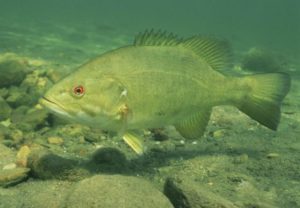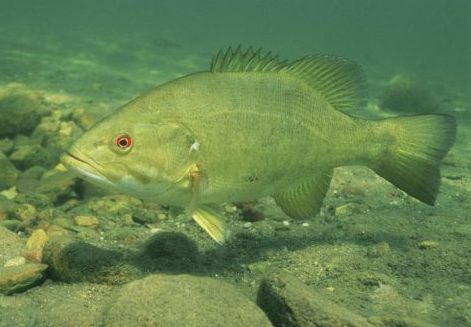NEWCASTLE Upon TYNE, England — New research has found that noise pollution in the oceans is causing negative effects on fish. The deep-sea sounds are leaving the fish confused, and making it difficult for them to make proper judgements when hunting prey or avoiding predators.
Researchers at Newcastle University studied 54 European sea bass inside a tank at another university in the United Kingdom. The authors exposed the fish to piling sounds recorded 2-5 meters below the surface of a construction site for a new lifeboat station in the Swansea Bay, and drilling sounds from the installation of a new tidal barrage at the English Channel.

Each of the recordings met the hearing range — 100 – 1,000 Hz — of many fish species including sea bass. While researchers played these recordings to the fish, they also staged simulations of a predator approaching.
They found that while the piling sounds were playing, the fish showed signs of confusion, wildly turning and failing to avoid the predator. During the drilling recordings, the authors observed the fish spent a majority of their time away from the sound, keeping to what the researchers referred to as the “safe zone.”
The researchers also noticed that the fish took time to recover from the noise pollution.
“Over the last few decades, the sea has become a very noisy place,” says lead researcher Ilaria Spiga, in a university news release. “The effects we saw were subtle changes, which may well have the potential to disrupt the seabass’s ability to remain in tune with its environment.”
Spiga explains that the noise pollution impairs the judgement of the fish, noting that it may have a negative influence on their communication and reproductive functions.
“Sea bass, along with other bony fishes, rely on a characteristic ‘startle and response’ mechanism to get away from predators. Exposure to underwater noises can make it harder for fishes to detect and react to predators,” says Spiga, adding that the sounds can hamper their food-detecting capabilities.
Moreover, noise pollution may even have a significant impact on fish populations.
“Man-made marine noise could potentially have an adverse effect on reproduction also. If fishes actively avoided areas where these sounds are present it could prevent them from entering spawning grounds, or affect communication between individuals,” says Spiga.
To prevent such a catastrophe, the researchers propose limits on how long drilling and piling at construction sites near waterways can take place. Giving marine life ample time to return to a normal atmosphere would help ensure a healthy existence.
The study’s findings were published in the September 15, 2017 edition of the journal Marine Pollution Bulletin.

Comments